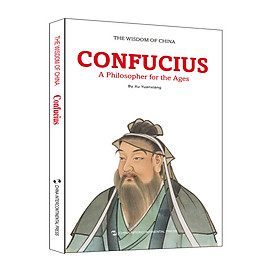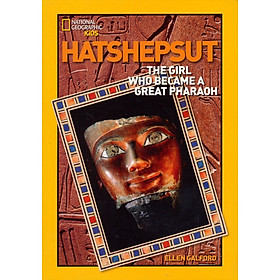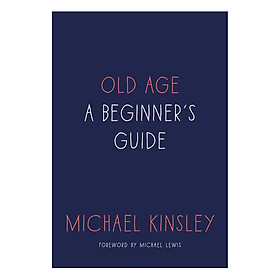The Wisdom of China: Confucius - A Philosopher for the Ages
EditorialReviews The pre Qin Confucianism and Buddha China philosophy, three thinking good reading so far is still full of wisdom, giving people the inspiration. The essence of these Chinese...
SKU: 8582022061570
EditorialReviews
The pre Qin Confucianism and Buddha China philosophy, three thinking good reading so far is still full of wisdom, giving people the inspiration. The essence of these Chinese culture is also attractive to many foreigners.
English version of "Chinese wisdom" series for foreign readers, the exploration of Confucius, and grandson, Lao Tzu Mencius, Chuang-tzu and other cultural sages legendary life with the perspective of modern people; with vivid stories and line drawing techniques, interpretation of their wisdom and thoughts; through comparing the performance of the Chinese and foreign history and culture, Chinese cultural heritage and the mutual influence Chinese between traditional culture and Western culture.
Main Content
The pre-Qin Confucian philosophy and Taoism, are full of wisdom, giving modern time people profound inspiration and enlightment. They represent the essence of the Chinese culture.
The Wisdom of China is a series for foreign readers. They tell of the lives and wisdom of ancient sages including Confucius, Lao Tzu, Sun Zi, Menciu and Chuang-tzu. From these readers are expected to the cultural wisdom of the Chinese.
As the books are treated with living stories, readers will feel close to the time sages and find it easy to understand their philosophies. A survey among the potential readers show these books are easy to understand and the best channel to understand a cultural China.
The series books include CONFUCIUS: A Philosopher for the Ages, LAO TZU: The Eternal Tao Te Ching, MENCIUS: A Benevolent Saint for the Ages, SUN TZU: The Ultimate Master of War, ZHUANGZI: Enjoyment of Life in an Untroubled State. For the compilation of these books, the authors went to hometowns of these sages and hit numerous books in library. Many of their contents are available to readers for the first time.
“Criticize and repudiate Confucius!” “Down with Confucius!”—How does Confucius fare in China in the 20th century? Is Confucius a sage or an ordinary person? How was the school of thought of Confucius formed? What is its influence on the world?
Catalog
CONTENTS
Introduction
Family Story
Core of Confucian Thought of School
Initiating Private Schools
Traveling Across China
Intellectual Legacy to Future Generations
Fate of Confucianism in Various Dynasties
Influence on Human Civilization
Quotations from Confucius and his Disciples
Digest
Initiating Private Schools
If we take an overall view of Confucius’ life, three clear passions define his 73-year-long life journey: firstly, he pioneered China’s first non-government funded education system; secondly, he led a peripatetic existence with his band of disciples and believers, traveling around the various parts of the vast lands of the Chinese continent; thirdly, after he returned to the Lu State in his late years, he began to sort out and compile the ancient books left behind from previous generations, namely such classics of ancient China as The Spring and Autumn Annals, The Book of Songs and Shang Shu.
A popular Chinese proverb observes: “A man should stand on his own feet at thirty.” That is to say, when a man comes to thirty he should have formed his own opinions. The first to enunciate this idea was Confucius. The great philosopher also advocated what was then a revolutionary idea in the field of education; namely that in education there should be no distinction between classes of men. In other words, everyone in society should enjoy the right to an education.
In civilized society today, everyone is familiar with the word “education.” But some 2,500 years ago, education was the preserve of the aristocrat. In the spring of 522 BC, in a place named Xingtan, Chinese common people for the first time crossed the threshold of a school and stood before their teacher. That teacher was Confucius, a man who believed that education was a fundamental right for all people, rich and poor, high-born and low.
Irrespective of whether you were the son of a common family or of a scholarbureaucrat, Confucius said you could go to school as long as you observed certain formalities These included, for instance, giving the teacher some small remuneration, like a piece of dried meat, and performing a ceremony of formally acknowledging the teacher as your teacher. Once these formalities had been carried out, social distinction melted away and noblemen and peasant became merely students...
Preface
Introduction
In the 5th century BC, in Athens, origin of so much that is central to Western civilization, the great philosopher and thinker Plato described in a book an ideal society: a society utterly under the reign of philosophers, in which people would live in harmony and orderliness. The book is the world-famous the Republic.
About 100 years before Plato lived, another cultural giant was dedicating his life to creating and building a society of peace and prosperity, a society of mutual love and orderliness. In the end, he died believing that his ideals would disappear with him from the world. He was wrong. His teachings gained in popularity, and generation after generation of Chinese inherited and handed down his great thoughts. This man is known in history as Confucius, a philosopher for the ages.
In the early years of the 17th century, when Western missionaries first trod upon the mysterious land of China, they were puzzled as to how such a vast empire containing dozens and dozens of ethnic g roups could coexist so harmoniously.
The key to this impressive imperial stability, the ideology that propped up this magnificent country was, as the missionaries were later to discover, provided by the life and teachings of that Oriental cultural giant, Confucius, the founder of the school of Confucianism. By the time those hesitant missionaries trod on Chinese soil, Confucius had been sleeping the sleep of ages for more than 2,000 years.
Giá sản phẩm niêm yết của Biographies & Memoirs The Wisdom of China: Confucius - A Philosopher for the Ages trên các sàn TMĐT đã bao gồm thuế theo luật hiện hành. Tuy nhiên tuỳ vào từng loại sản phẩm hoặc phương thức, địa chỉ giao hàng mà có thể phát sinh thêm chi phí khác như phí vận chuyển, phụ phí hàng cồng kềnh, ...
Mức giá và các nhà cung cấp được liệt kê tại đây chỉ dùng để bạn tham khảo. Khi quyết định mua hàng bạn cần xem xét thêm về đánh giá của khách hàng tại shop đó. Sau cùng bạn chọn mua sản phẩm từ nhà cung cấp mà bạn cho là uy tín nhất với mức giá hợp lý nhất. Chúng tôi không trực tiếp bán hàng cũng như vận chuyển và không chịu bất kỳ trách nhiệm nào về quyết định mua hàng của bạn.
| SKU: | 8582022061570 |
|---|
















